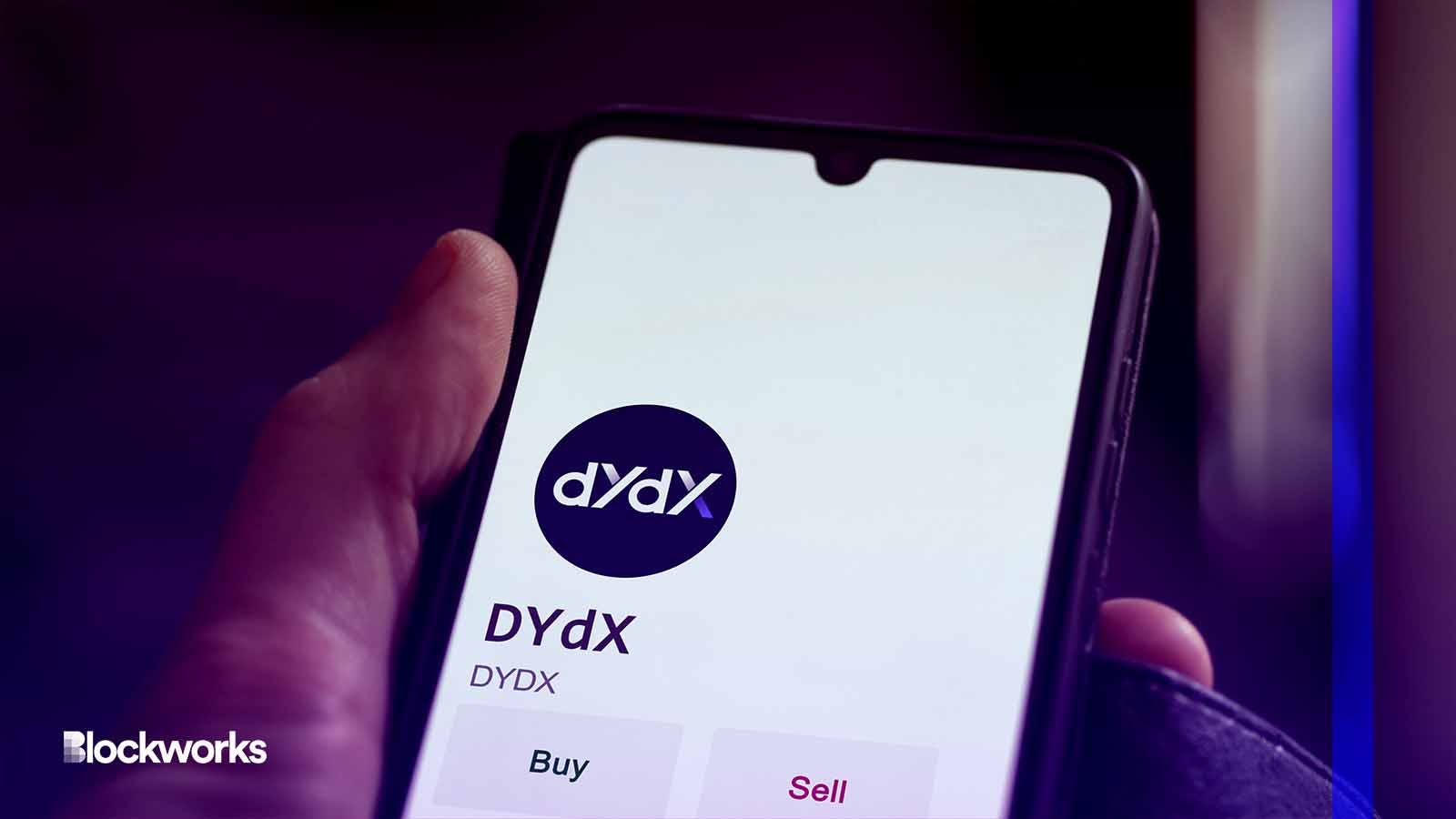MEV doesn’t have to be a zero-sum game, research suggests
Minimizing MEV and leveling out the playing field starts with transparency, a new research report contends

Maurice NORBERT/Shutterstock modified by Blockworks
On-chain perpetual trading exchange dYdX is poised to embrace full decentralization with its upcoming v4 protocol design.
Consequently, its order book — comprising buy and sell orders for different crypto trading pairs — will be decentralized and, as a result, kept in the hands of validators.
But new research prepared by staking provider Chorus One suggests that ethical concerns could arise under such a framework — leading to potential disruptions on the exchange.
Via its grant platform, dYdX itself funded the research, to the tune of $36,000. Chorus One was tasked with preparing “an in-depth report on MEV in dYdX v4” to “provide a better understanding of what to expect in terms of MEV as we migrate to v4.”
In an interview with Blockworks, Chorus One research lead Michael Moser said that without ethical considerations, validators might attempt to manipulate transaction order, censor transactions or even introduce transactions into the order book.
“If I’m a dishonest validator, I might reorder transactions. If I don’t have any ethical qualms, a badly behaving validator may also censor transactions or put transactions in the order book that shouldn’t be there,” Moser said.
Maximum extractable value (MEV) refers to how validators get the most economically out of block production on the network — specifically, how transactions are ordered and what they cost.
And that’s not necessarily bad, Moser said.
“MEV is a very broad term, when its applied currently, if you take any kind of order book that lives onchain, or even an [automated market maker], arbitrage will serve as a means of getting [consistent] prices, and make sure that users will always get correct prices,” he said. “It is something that is essential to the smooth functioning of financial markets.”
The goal of the report, therefore, is to even the playing field for would-be dYdX v4 users and minimize what are essentially hidden taxes on retail users.
Mitigating MEV externalities
Chorus One’s latest report delves into how these negative externalities can be mitigated in a validator-driven order book.
“The key factor here would be transparency, there would need to be a way for any user that uses dYdX to see if validators execute the order book as you would expect them to,” Moser said.
In this scenario, the process would involve locating the order book and assessing whether each node executed orders in a manner consistent with its peers.
“I think there might be an important point here that the validators keep copies of the order book,” Moser noted. “There might be some network dynamics but then generally, you would expect validators to have sort of the same status quo as far as the order book goes.”
He recommends that any detected negative behavior be brought to public attention, allowing community members to decide on subsequent actions, potentially including slashing penalties. These measures aim to level the playing field for retail traders and maintain accountability among validators.
Another facet of transparency involves offering increased information to stakers who delegate their stake to validators.
In situations where staking penalties come into play, stakers seek assurance that they have entrusted their funds to a validator who upholds the integrity of the order book.
“Your capital stands in for any statutory penalty that would come, so you won’t have your skin in the game with somebody that you already know doesn’t act in the best interest of the chain, and imposes additional financial risk,” Moser said.
Next steps
This latest MEV report has two primary objectives.
Firstly, it seeks to educate community members on validator-driven MEV — what it entails, the incentives behind it, and strategies to alleviate its impact.
The second goal, as shared by Moser, is to foster collaboration between dYdX teams and validators in shaping a comprehensive perspective on MEV.
“The final recommendation of the report is consistent with what Skip Protocol and what dYdX is already working on: a dashboard which tracks validator misbehavior,” Moser said.
Get the news in your inbox. Explore Blockworks newsletters:
- The Breakdown: Decoding crypto and the markets. Daily.
- 0xResearch: Alpha in your inbox. Think like an analyst.






